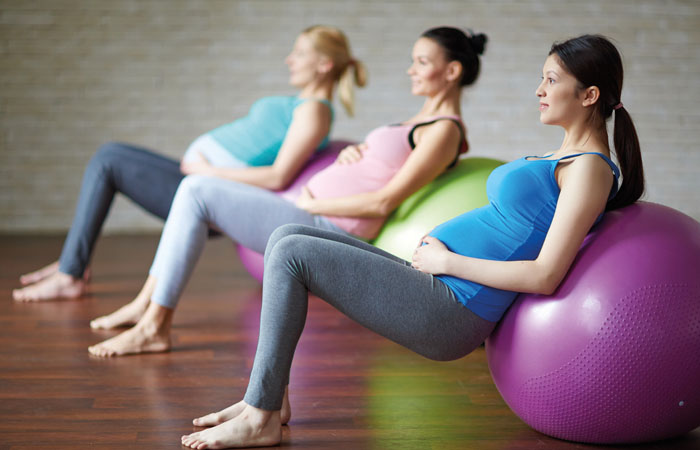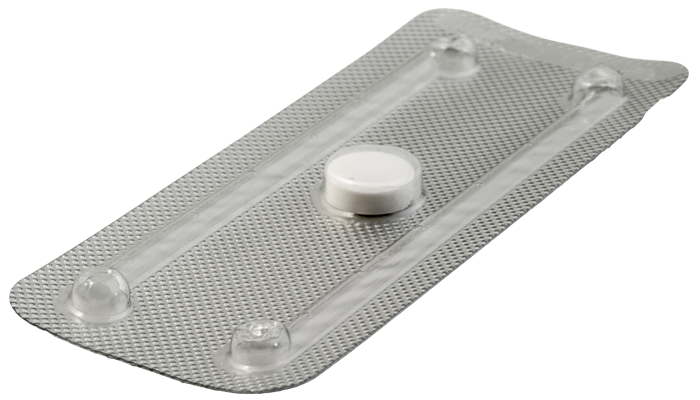Problem solved
In Conditions
Follow this topic
Bookmark
Record learning outcomes
Women tend to be in tune with their health needs and how to meet them, but from time to time they will need extra support. Pharmacy can be on hand to answer some frequently asked women’s health questions
Women’s health is a complex and varied category, which includes genitourinary health, heart health, and everything in between. This means pharmacy staff need to ensure their knowledge is wide-ranging and up to date to offer women the right advice.

Q: My daughter has period pain, but paracetamol doesn’t help. What can she do?
A: As many as nine in 10 women experience pain and discomfort in their abdomen, lower back and thighs during their period, as a result of the womb’s muscular wall contracting to shed its lining and the menstrual blood.
Dr Karen Morton, consultant obstetrician and gynaecologist and founder of medical helpline Dr Morton’s, says that while some comfort strategies can help, painkillers are really the best option and should be taken before the pain intensifies and until it has naturally subsided. Paracetamol should be taken as first-line treatment, but if this is ineffective, customers can alternate it with ibuprofen or try naproxen, which is a non-steroidal anti-inflammatory drug specifically for period pain.
As for knowing when to take further action, a good yardstick is if the period pain disturbs sleep, says Dr Morton. “If it’s a manageable nuisance, you take paracetamol before bed and you can sleep, then good. But if sleep is disturbed despite taking painkillers, that is not acceptable, so seek help,” she advises.
Some gynaecological conditions can cause similar pain, so if the pain is severe, it’s important to get checked out by a GP.
Q: My vaginal discharge has become very thin, watery and slightly grey in colour. Have I got thrush?
A: Bacterial vaginosis (BV) is commonly mistaken for thrush and Dr Morton explains that although the origins of the two are not that dissimilar, the conditions are very different. “With BV there is a disturbance in the ecosystem of the vagina. The vagina is not a sterile area – it’s not meant to be – and sometimes the bacterial balance becomes disturbed,” she says. “You get discharge which is slimy, greeny-grey and usually smelly.”
OTC treatment options include gels containing lactic acid and glycogen, which help to restore the vagina’s natural acidity and bacterial balance and relieve unpleasant odour and abnormal discharge. Post-menopausal women don’t have oestrogen nourishing the vagina, so they’re more susceptible to BV. Dr Morton says that women approaching the menopause should be made aware of this risk and should be advised that “it’s a good idea to use oestrogen cream or pessaries in the vagina if they’re not taking HRT through the bloodstream, just to have that localised benefit”.
Thrush, on the other hand, is a yeast infection caused by Candida albicans. Symptoms include “an itching and burning – a feeling like your nether regions are on fire – and classically, a cottage cheese-like discharge that can be pinkish in colour,” says Dr Morton. Thrush can be triggered by taking antibiotics (which kill bacteria but not yeast) or caused by hormonal changes, wearing tight or synthetic clothing, or damage to vaginal tissues during sex or vigorous washing. It can be managed by “taking care of hygiene – such as wiping from front to back; reducing yeast in the diet and increasing bacterial intake, tipping the balance between yeast and bacteria in the gut by taking a probiotic in the morning,” advises Dr Morton.
Q: I need to go to the toilet frequently and it stings when I wee. What’s wrong?
A: Cystitis is characterised by a burning sensation when passing urine and can be caused by dehydration, irritation, toiletries, inflammation, infection, and sex. “The female urethra is short and next to the vaginal wall, so it is directly traumatised during sex,” explains Dr Morton. She recommends offering advice like weeing after sex and making sure to drink lots, but says that cystitis should only be treated with antibiotics if an infection has been proven. Taking antibiotics unnecessarily can lead to antibiotic resistance and an increased risk of thrush.
Drinking plenty of water to flush out the bladder is important and “people should reduce the acidity in their diet so don’t eat tomatoes or citrus fruits and don’t drink caffeine as it irritates the bladder. Detox until it feels better,” says Dr Morton. “Sachets available OTC containing potassium citrate can also be soothing.”
Q: I’m trying to lose my pregnancy weight, but when I exercise, a little bit of wee comes out. Is this normal?
A: Bladder weakness is an extremely common occurrence, with one in three women in the UK experiencing it at some point in their lives. During pregnancy, the bladder is put under a lot of stress, so bladder weakness during and after pregnancy is common.
Reducing the impact of bladder weakness can start with simple lifestyle changes like avoiding diuretics, eating more healthily to avoid constipation and doing pelvic floor exercises, says Donna Wilson, TENA training and brand manager. Pelvic floor exercises tone and strengthen the muscles that support the bladder, reducing leakage – up to 70 per cent of mild to moderate cases can be improved or cured by pelvic floor exercises over three to six months.
When it comes to bladder weakness protection, Donna says:“Customers may feel tempted to turn to regular sanitary protection for their needs, simply because they have trusted these products in the past, feel more closely acquainted with them and aren’t aware of the other purpose-made solutions available to them.” In fact, 49 per cent have done just this, with 30 per cent admitting they have been let down when using these products. Donna explains that this is because they’re not equipped to deal with the thinner, faster flow of urine. “Educating customers on purpose-made protection will help them feel at ease,” she says.

Q: There’s so much information and misinformation about HRT. Is it safe and how can it help?
A: Hormone replacement therapy (HRT) is used to alleviate symptoms of the menopause such as hot flushes, night sweats, sleep disturbances and vaginal dryness, as well as to help prevent osteoporosis. It can have a significant positive impact on quality of life during the menopausal years. However, a 2002 study linked HRT to breast and ovarian cancer and since then, HRT use has fallen.
In November 2015, NICE issued guidelines for the menopause, saying that if used on a short-term basis for no more than five years, the risks of HRT, including cancer, coronary heart disease and deep vein thrombosis, are small and are usually outweighed by the benefits.
The latest research by Breast Cancer Now and the Institute of Cancer Research suggests that the effect of combined HRT (which contains oestrogen and progestogen) on breast cancer risk is likely to have been underestimated and concludes that using combined HRT for five years increases the risk of breast cancer three-fold. It’s important to note that for those taking combined HRT, the increased risk level returned to about normal after ending treatment, and women using oestrogen-only HRT saw no overall increase in breast cancer risk.
Women who are considering HRT should be made fully aware of the risks and given all the information they need to make an informed decision about whether to start HRT or find alternative treatments. Pharmacy staff should also advise all women to be vigilant about checking their breasts regularly for signs of cancer, during and after the menopause, especially if they’re taking combined HRT, and attend breast screening every three years.
Q: I’ve heard that after the menopause the risk of heart disease increases. What can I do to help protect myself?
A: “The risk of coronary heart disease (CHD) naturally gets higher with age, but whereas for men it’s at a constant increase, for women, there’s a steep incline after the menopause,” explains Lucy Wilkinson, senior cardiac nurse at the British Heart Foundation (BHF). This is largely attributable to the fact that during the pre-menopausal years, hormones offer women some protection against heart disease and when these hormone levels deplete, that protection also decreases.
“Everybody needs to be aware of the risk of heart disease and the importance of reviewing their risk factors,” says Lucy. “So not smoking, regulating alcohol intake, eating a diet that’s low in saturated fat, exercising adequately to control weight and also managing stress. Stress doesn’t directly cause heart disease, but it can lead to unhealthy behaviours which increase the risk of developing CHD.”
CHD kills three times more women than breast cancer and raising awareness of the risks is important, especially in the post-menopause years. “Women tend to be less aware of the signs and symptoms of a heart attack and are more likely not to go to hospital to get checked out as they’re usually the carer of the house and have responsibilities,” Lucy says. Symptoms of a heart attack include chest pain that radiates to the shoulder and down the arm, pins and needles, nausea, vomiting and dizziness. “Reiterating that it’s not just a case of someone clutching their chest is important, and people should get checked out, even if they think there’s only a small chance,” explains Lucy. “It’s also worth mentioning to women that some women get palpitations during the menopause due to fluctuating hormone levels. Most of the time this is normal and nothing to worry about, but it’s good to get checked out to be sure.”
In England, adults aged 40-74 are entitled to a free NHS Health Check every five years to assess risk factors of cardio-vascular disease, diabetes, dementia and kidney disease. “Pharmacy staff should urge people to go, especially women who are menopausal, to check that their blood pressure and cholesterol are under control,” advises Lucy.
Q: My mum is 73 and has just been diagnosed with Alzheimer’s disease. Does this mean I’m likely to develop it too?
A: The link between genes and Alzheimer’s disease is complex, but in the vast majority (99 per cent) of cases, Alzheimer’s is not passed on to children. Dr Louise Walker, research communications officer at the Alzheimer’s Society, explains that the gene with the greatest influence is APOE, which has three different variants: APOE ε2, APOE ε3 and APOE ε4. Everyone gets one variant from each parent and the combination determines a person’s Alzheimer’s risk. Some combinations are mildly protective, some neither increase nor reduce the risk and others increase the risk, but Dr Walker says Alzheimer’s is “never inevitable and genes are just another piece of the puzzle.”
Risk factors include age, smoking and high blood pressure, but Dr Walker advises recommending a healthy lifestyle to help reduce the risk of Alzheimer’s disease. This includes plenty of exercise and a good diet with lots of oily fish, fruit and vegetables, cereals and limiting red meat and sugars. Being socially active and keeping the brain busy can also help, although evidence is weaker. “You need to be very clear about the fact that these may help in reducing risk, but there is no guarantee that they will prevent Alzheimer’s from developing,” Dr Walker says. “You can advise people [who have a family member with Alzheimer’s] to make those positive lifestyle changes as early as possible. If you do something about it in mid-life – your 40s and 50s – you’ve got a greater chance of reducing your risk.”
It can be difficult to distinguish Alzheimer’s from signs of normal ageing, but Dr Walker explains that a good indication is if it interferes with daily life. “Not remembering where your keys are, compared to not remembering what your keys are for – that can be a very useful thing to think about,” she says. “It’s also important to remember that people are able to live well with dementia and get the support and advice that they need to do so.”
The morning after

“Some 75 per cent of women who access emergency hormonal contraception (EHC) do so from a pharmacy, meaning provision of oral emergency contraception and advice around it is an important role for pharmacy teams within the community,” says Alison Slingsby, women’s health and marketing manager UK and Ireland, HRA Pharma. “Although the pharmacist in charge will ultimately be responsible for the decision as to whether EHC can be supplied to a customer and which product is most suitable, pharmacy support staff can still provide valuable assistance by supporting with the consultation, helping customers to feel more comfortable and highlighting the important differences between the various EHC options to help inform a woman’s choice.”
There are two oral emergency hormonal contraceptives available over the counter in pharmacy – levonorgestrel and ulipristal acetate – which can be taken up to three and five days after unprotected sex respectively. Both pills work by preventing or delaying ovulation, and the sooner they are taken, the more effective they will be at preventing pregnancy.
A copper intrauterine device (IUD), often known as a coil, is another option. Alison says: “Women seeking an IUD for emergency contraception should be advised to contact a GP or family planning service as a matter of urgency. It is also common practice to consider offering EHC to these women in case there are any problems obtaining or fitting the IUD.”
CHD kills three times more women than breast cancer
